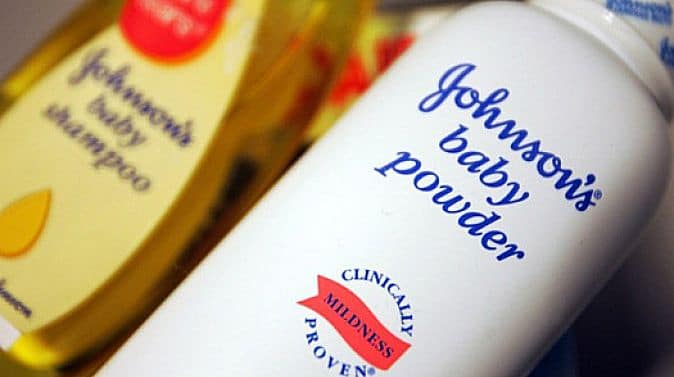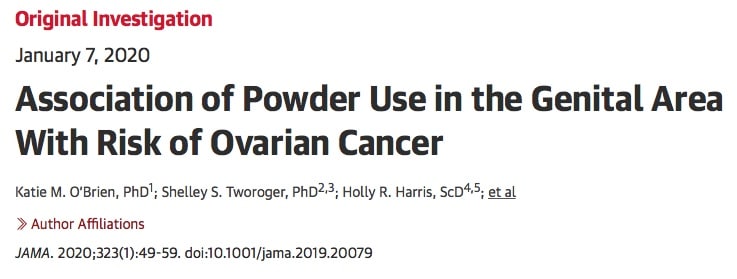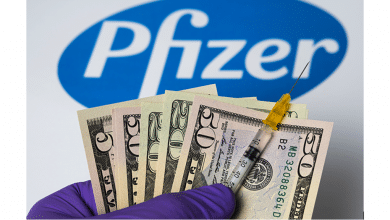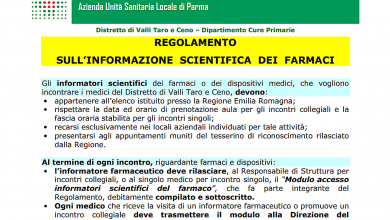
Talc and ovarian cancer: there is no link, says science
Universomamma - By Valeria Bellagamba –
Backtrack, the talcum powder does not cause ovarian cancer. The statement, surprisingly, comes from a extensive scientific study conducted in United States and published in the prestigious scientific journal Journal of the American Medical Association (JAMA). A surprise because in recent years they have been numerous convictions with millionaire compensation for ovarian cancers allegedly caused by the use of talcum powder. Sentences issued against the multinational Johnson & Johnson, famous, among others, for its talc. Why Scientists Said Talc Doesn't Cause Ovarian Cancer And What May Happen To Claims.
Talc and ovarian cancer: no link
 A new study on talc and ovarian cancer is bound to be discussed but there seems to be no doubt about the results given the vastness of the sample involved and the extensive review of studies already conducted on the topic. There is no link between talcum powder and ovarian cancer. This is the conclusion reached by a scientific study conducted by US government and published in the well-known and prestigious magazine JAMA – Journal of the American Medical Association. The study is a new review of other studies already published on the subject, the largest to date, and in which the related data of more than 250,000 women.
A new study on talc and ovarian cancer is bound to be discussed but there seems to be no doubt about the results given the vastness of the sample involved and the extensive review of studies already conducted on the topic. There is no link between talcum powder and ovarian cancer. This is the conclusion reached by a scientific study conducted by US government and published in the well-known and prestigious magazine JAMA – Journal of the American Medical Association. The study is a new review of other studies already published on the subject, the largest to date, and in which the related data of more than 250,000 women.
There correlation between talc use and ovarian cancer has become over time a crucial issue in the United States due to various diagnoses of this type of cancer in women who had used talcum powder for years for intimate hygiene. Many American women have applied talcum powder to their private parts, directly or to their underwear, every day for decades. Some ended up with ovarian cancer and under indictment it's over there Johnson & Johnson multinational pharmaceutical company, whose famous talcum powder had been used by sick women.
Responsible for the ovarian cancer were held to be asbestos particles contained in talcum powder. Reason why in the lawsuits filed against Johnson & Johnson the courts gave  right to sick women and their families, condemning the multinational a millionaire compensation. In 2018, the pharmaceutical company was ordered to pay the overall sum of $4.7 billion to 22 women who had sued her, claiming that they fell ill due to the talcum powder used daily on her private parts, without being warned of the dangers of frequent and long-lasting use. About these cases the appeal process has yet to be completed and now the new study on JAMA could overturn the sentences already pronounced.
right to sick women and their families, condemning the multinational a millionaire compensation. In 2018, the pharmaceutical company was ordered to pay the overall sum of $4.7 billion to 22 women who had sued her, claiming that they fell ill due to the talcum powder used daily on her private parts, without being warned of the dangers of frequent and long-lasting use. About these cases the appeal process has yet to be completed and now the new study on JAMA could overturn the sentences already pronounced.
Some studies in the past had established a causal link between talcum powder and ovarian cancer, while in 2006 the IARC - International Agency for Research on Cancer classified thegenital use of talc as potentially carcinogenic. However, even before there was no unanimity of views in the scientific community, because in the face of studies that established a link between the use of talcum powder in intimate parts and ovarian cancer, others contested the assumptions. Therefore there has never been certainty on the causal link between talc and tumor. While regarding the definition by the IARC on the carcinogenic risk of using talcum powder for intimate hygiene, the cancer risk understood in this way also concerns the intake of many other substances, think of alcohol or red meat. Several things are at risk for cancer, especially their abuse or prolonged use. That could also be the case with talcum powder, but that doesn't mean that just using it is automatically carcinogenic.
With the new scientific study on the subject, coordinated by Katie O'Brien of the National Institute of Environmental Health Sciences, the researchers have examined and synthesized the data from four large previous studies conducted from 1982 to 2017 and which included data from 252,745 women, which they had been interviewed several times over time with several questions related to theirs Health, including also theuse of talc. The women were followed up for an average period of 11.2 years and between them 2,168 fell ill with ovarian cancer. Despite the relevant number, however the researchers did not find a statistically significant association in comparing women who had used talcum powder and those who had never used it. Nor was a significant association found when comparing frequency or duration of use.
As it reports Handle, then, Jama magazine also published a editorial, accompanying the audit study, in which it defined the scientific method used is “solid”. and the "overall reassuring" results. The millionaire lawsuits against Johnson & Johnson now they risk ending up with a hole in the water.
Related news: JAMA. Association of Powder Use in the Genital Area With Risk of Ovarian Cancer
Drugs: US opioid case, pharmacy chains sue Ohio doctors





